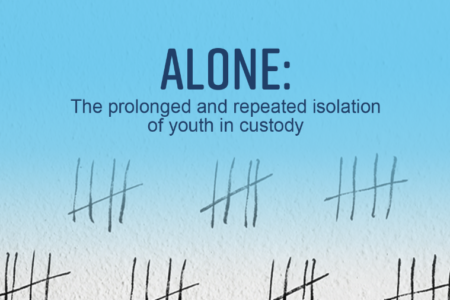In It for the Long Term
“There is nothing permanent except change.”– Heraclitus
The ancient Greek philosopher Heraclitus was believed to have suffered from melancholia, hence his nickname “the weeping philosopher.”
17th century Dutch baroque painter Johannes Moreelse depicts Heraclitus as an old man wringing his hands over a globe of the world, tears forming in the corners of his eyes.
Fast forward to 2015 and barely two months into the year, Canadians have much to wring their hands over: the dropping value of oil and its effect on the Loonie; the sale of Tim Horton’s; Stephen Harper’s new anti-terrorism legislation; the bankruptcy of Target Corporation’s Canadian stores; and the Supreme Court’s assisted suicide decision.
Heck, with all that controversial news the Canadian media could almost be forgiven for not realizing what the country’s polar bears have known for 20 years – the planet is warming.
The first episode of The Great Human Odyssey on CBC made clear that our ancestors have dealt with a changing climate many times in the past. Sometimes it wiped out civilizations, but somehow climate fluctuation made humans who we are today, probably because we came close to going extinct.
“What I’m convinced by is climate shifts were a really important forcer. They forced our evolution rapidly and in certain directions,” Canadian anthropologist and filmmaker Niobe Thompson said in an interview.
The question facing us in 2015 is how will we deal with the current climate chaos? Will we modify our behaviour in time to avoid another bout with extinction?
Our world is heating up
The World Meteorological Organization has confirmed that 2014 was the hottest year in the historical record of global temperature dating from 1880.
The WMO – the weather and climate arm of the United Nations – pointed out that 14 of the 15 warmest years on record had all occurred in the 21st century, with 1998 being the only exception.
“The overall warming trend is more important than the ranking of an individual year,” the secretary general of the agency, Michel Jarraud, said in a statement.
News of the record should be no surprise since the Japan Meteorological Agency announced this on December 22, 2014.
Early in January 2015, the UK Met office said provisional figures for 2014 show it was the UK’s warmest and fourth wettest year in records dating back to 1910.
Not long after, the National Aeronautics and Space Administration’s Goddard Institute of Space Studies and the National Oceanic and Atmospheric Administration (NOAA) found 2014 the hottest year in the modern record.
Despite all that high-powered help agreeing on the fact most of the warming is the result of greenhouse gases released by humans, controversy swirls.
We’re guilty as charged
We humans just seem to have trouble facing up to our role in this scenario; yet the charts convict us.
Average global air temperatures over land and sea surface in 2014 were 0.57 °C (1.03°F) above the long-term average of 14°C (57.2 °F) for the 1961-1990 reference period. By comparison, temperatures were 0.55 °C (1°F) above average in 2010 and 0.54°C (0.98°F) above average in 2005, according to WMO calculations. The estimated margin of uncertainty was 0.10°C (0.18°F).
Around 93% of the excess energy trapped in the atmosphere by greenhouse gases from fossil fuels and other human activities ends up in the oceans. Therefore, the heat content of the oceans is a key to understanding the climate system. Global sea-surface temperatures reached record levels in 2014, according to the WMO’s provisional statement on the Status of the Global Climate in 2014.
“In 2014, record-breaking heat combined with torrential rainfall and floods in many countries and drought in some others – consistent with the expectation of a changing climate,” said Jarraud.
An opportunity for progress?
The WMO released the global temperature analysis in advance of climate change negotiations held from February 8 to 13 in Geneva where almost 200 countries agreed on a draft text for a deal to fight climate change.
The 86-page draft provided a vast range of options for limiting further damaging temperature rises. Delegates avoided the hard task of narrowing down the options, leaving that to a negotiating session in June.
The length of the text was a concern to Christiana Figueres, the head of the UN climate change secretariat. She said it will make the next negotiating session “a little bit more difficult” because negotiators are to meet a UN requirement that an official text is in place six months before a summit in Paris starting in November 2015.
However, many delegates felt the talks went smoothly compared to past often raucous meetings.
“The 2015 climate negotiations are off to a promising start,” said Jennifer Morgan, head of the climate program at the World Resources Institute think-tank. “Much hard work remains.”
Scientists issue ‘wake-up call’
Just how much hard work remains caused 16 scientists to conclude the climate emergency warrants investigation of “climate intervention” schemes. In two reports – Climate Intervention: Carbon Dioxide Removal and Reliable Sequestration and Climate Intervention: Reflecting Sunlight to Cool the Earth – for the U.S. National Academy of Science, scientists suggested carbon-sucking technologies could be considered as part of a portfolio of responses to fight climate change and urged a start on research into these unproven, and expensive, technologies now.
“The likelihood of eventually considering last-ditch efforts to address damage from climate change grows with every year of inaction on emissions control,” the report said.
The scientists did turn thumbs down on the riskier option of albedo modification, injecting sulphur dioxide to increase the amount of reflective particles in the atmosphere and increase the amount of sunlight reflected back into space.
“That scientists are even considering technological interventions should be a wake-up call that we need to do more now to reduce emissions, which is the most effective, least risky way to combat climate change,” Marcia McNutt, the committee chair and former director of the US Geological Survey, said.
Reduce fossil fuel subsidies
In a recent Guardian op-ed, Unilever CEO Paul Polman urged world leaders to “take advantage of plummeting oil prices and continuing low interest rates in developed countries to stop funnelling some $600bn a year in taxpayers’ money to fund fossil fuel subsidies, which often disproportionately benefit the rich who use more energy, investing this money instead in renewable sources and supporting innovation.”
According to the International Energy Agency’s World Energy Outlook 2014 (page 4 of the executive summary), fossil fuel subsidies totalled $550 billion in 2013 – more than four times those to renewable energies. More importantly, the IEA said these subsidies were holding back investments in efficiency and renewables.
Oil Change International, a research, communication, and advocacy organization focused on exposing the true costs of fossil fuels, estimates governments internationally provideat least $775 billion to perhaps $1 trillion annually in subsidies.
At a certain point in time, a logical person comes to the same conclusion Einstein reached – you can’t solve a problem using the same thinking that created it.
The 2 degree Celsius threshold
World governments committed to limit global temperature rise to less than 2 degrees Celsius from pre-industrial levels in Copenhagen in 2009 and reaffirmed that goal in Cancun in 2012.
To meet that goal, about 80% of all coal reserves are going to have to stay in the ground. Additionally, three times more fossil fuels are ready to be extracted than can be safely burned. Yet the fossil fuel industry spent $670 billion in 2013 exploring for more coal, oil and gas reserves that will be worthless if climate change is tackled.
In an unprecedented show of unity in the midst of a general election campaign, three party leaders in Britain have signed a joint pledge to tackle climate change.
The Conservative, Liberal Democrat and Labour leaders made three core pledges:
- “To seek a fair, strong, legally binding, global climate deal which limits temperature rises to below 2C”
- “To work together, across party lines, to agree [UK] carbon budgets”
- “To accelerate the transition to a competitive, energy-efficient low-carbon economy and to end the use of unabated coal for power generation.”
Inspiring leadership
“Acting on climate change is also an opportunity for the UK to grow a stronger economy, which is more efficient and more resilient to the risks ahead,” the joint statement says. “It is in our national interest to act and ensure others act with us.”
The declaration was hailed as a clear message that the UK is a good place for climate-friendly investment.
“This agreement represents inspiring leadership and true statesmanship by all three men,” said former U.S. vice-president Al Gore. “The political courage it represents on all sides is exactly what our world most needs in order to solve the climate crisis.”
The joint statement, brokered by the Green Alliance and other NGOs, was released on Valentine’s Day, the same day that the Go Fossil Free movement persuading investors to dump their fossil fuel stocks held a global day of action, with events in over 50 countries. The fast-growing divestment campaign has already seen 180 institutions worth a combined $50 billion get rid of their fossil fuel investments, including local governments, universities, churches and health-care providers.
The fact that such a unified agreement on a moral issue is unlikely to be ratified in Canada, Australia, or the United States illustrates the outmoded thinking of most politicians in those countries.
“The government’s message is the economy and jobs. So these moral issues are disruptive to that,” Canada’s Conservative Senator Nancy Ruth said recently, in specific reference to the assisted suicide debate.
Incredibly logical
Isn’t it time we agree with Australian corporate advisor Nigel Lake that an inflection point is rapidly approaching, “after which doing things differently becomes safer than sticking with what you know”?
Lake is the author of The Long Term Starts Tomorrow, a book that connects the “now” with the long term. It is described as “must reading for any manager, leader or Minister” by Mike Baird, the Premier of New South Wales and I have to agree that its core message is crucial.
Nigel Lake writes that the combined annual revenue of the top 20 oil and gas companies globally is over $4 billion US, more than the GDP of all but the world’s three largest economies.
“In other words, energy from fossil fuels represents one of the largest single costs in the world economy.”
Being critically dependent on natural resources that we know with absolute certainty will eventually run out doesn’t make sense, according to Lake.
“With this in mind, it seems incredibly logical to make real efforts to reduce dependence on fossil fuels sooner rather than later,” says Lake. “Indeed, if the world’s politicians wanted to restrict global warming to just two degrees, then we would need to stop using fossil fuels entirely within about ten years.”
Rules of the game are changing
Looking back on all the issues that Canadians are wringing their hands over, the take-away message is clear: the rules of the game of life are changing.
In Lake’s words, “The simplest challenge is that we need to find ways to make short term decisions that will lead to the best long term outcomes.”
Author Elizabeth Kolbert, whose most recent book is The Sixth Extinction: An Unnatural History, says we all need to ask ourselves this question: “If you don’t care about life on earth, what do you care about?”
Interviewed in the Spring issue of Tricycle magazine, Kolbert says humans are “changing the planet on a permanent basis: climate change, ocean acidification, moving things around the planet, scrambling the biosphere, and changing the surface of the earth – all the ways in which we are permanently inscribing ourselves on the history of the planet. The side effect of all these turns out to be extinction.”
The end of the great human odyssey really would change everything, but I don’t believe this is the change most of us want.
We have some tough decisions to make soon if we are truly in it for the long term. We have been offered some new roadmaps for the human journey. At some point in the near future, we won’t be able to say we didn’t know. We do know.
We are at yet another point in time when we need to evolve rapidly and move in a different direction.
Michael Jessen is a Nelson-based energy consultant and has written about environmental issues for more than two decades. He is a member of his local Citizens Climate Lobby chapter.

























